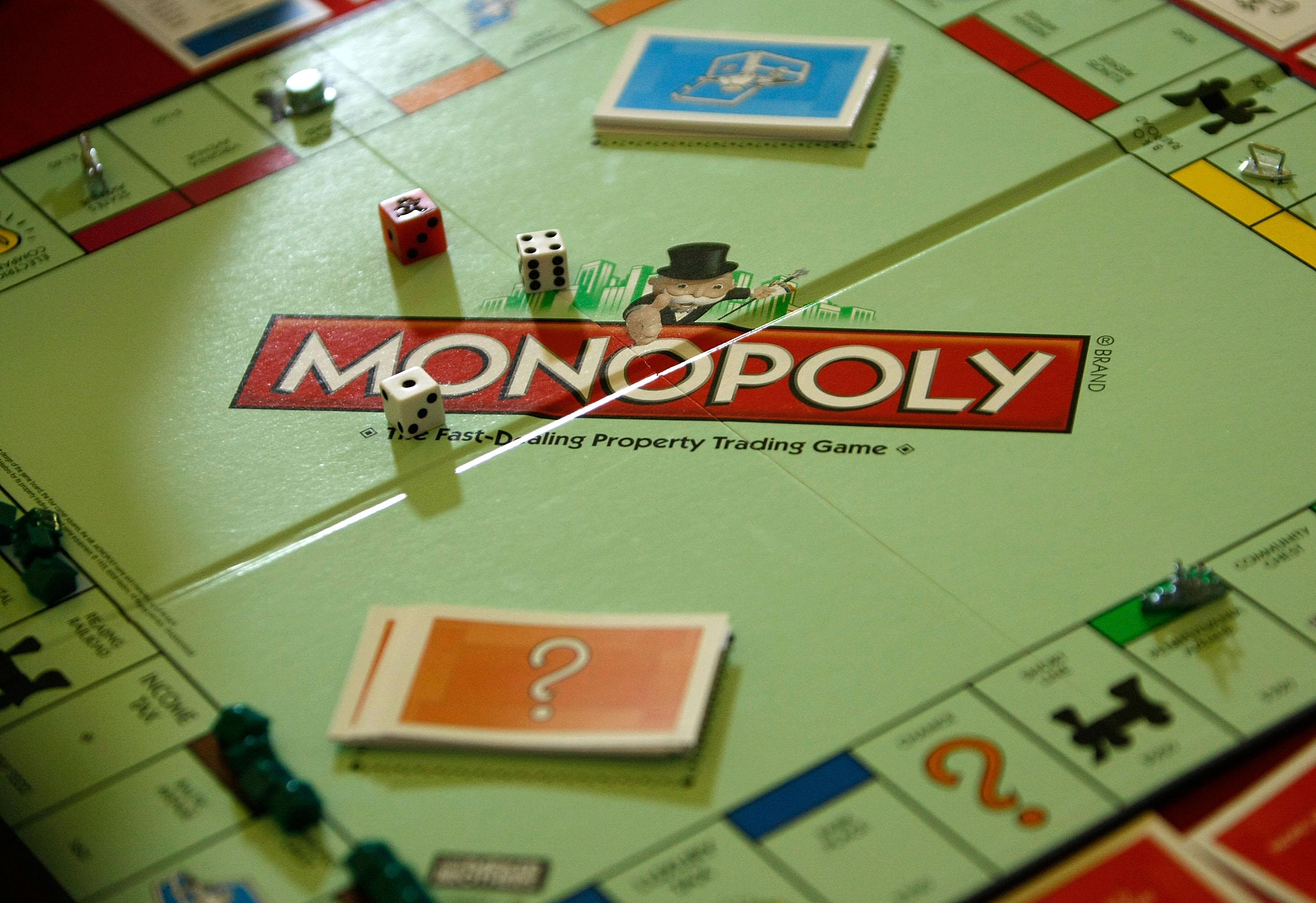An old blog post about an “unknown” Monopoly rule has been making its way around the Web the past few days, starting with a piece on BuzzFeed, then spreading to MSN, Yahoo, HuffPo, and a slew of other places. The gist is simple: When landing on a property, you’re allowed to auction it off, with the highest bidder paying the bank, rather than just purchasing it yourself.
Even putting aside the fact that all respectable Monopoly players already know this rule, the blog post is deeply annoying to enthusiasts of the Parker Brothers classic (those of us who, say, play in Monopoly tournaments). The BuzzFeed writer says that this rule “makes the game much more skillful,” but that’s only true if you pride yourself in giving opponents easy monopolies with which to annihilate you. Diehard Monopoly fans know this rule already, but they never use it, because it’s an absolutely putrid strategy. The blog post that started this and the many articles that have appeared in its wake are roughly akin to asking, “Did you know you’re allowed to shoot 3-pointers underhand in basketball?!?” Of course you can. But no sane person would.
The strategy is foolish because every property is actually severely undervalued—by landing on one, you have the opportunity to purchase it at a price far below market value. You can read a good rundown of the data online, which shows that the value of most properties with only a house or two is easily recouped within 10 or so turns around the board in a three- or four-player game. All of these articles seem to suggest you might get a property at a cheaper price by auctioning—but if that happens, you’re facing extremely unskilled Monopoly players. Usually what will happen is that you’ll sell a $200 property for, say, $450 and feel like a moron. Even if you can’t build on it, you can just mortgage it for half the price.
There’s a common misconception that you need a lot of money at the beginning of the game, and so many players fear spending it all on properties. Really, though, the important thing at the game’s onset is to simply grab up as much property as possible, Blake Carrington-style, and then use that to trade for monopolies or cash. If you’re at the point in the game where properties are still available, then it’s unlikely anyone else has anything serious to watch out for—so it’s OK to have a thin wallet, especially when there’s an instant $200 cash flow every time you pass Go.
People also seem to think you should “target” the orange monopoly, and consider the other properties auctionable. That’s fine and all if you’re Tony Wonder and can manipulate time and space, but most of us are at the whim of the dice when it comes to what monopolies we’ll be in position to acquire. You may wish you’d held on to that yellow one when the guy across from you has the other two and wants to trade.
But perhaps the main reason this “new” rule went viral is because it can supposedly speed up the game. Playing tennis left-handed will also result in a pretty quick match. And besides, a game of Monopoly among smart, experienced players usually takes between 60 and 90 minutes. Yes, you read that right. Games among “amateur” players often extend far longer for a variety of reasons:
People wait too long to trade monopolies. There’s a train of thought that once you give someone a monopoly, you’ve given them the game. But trading someone the last piece of their monopoly for cash or other valuable assets that could lead to your own monopoly is not such a bad move, especially if you leave your opponent without a lot of money to build up their new monopoly.
People wait too long to build up monopolies. Once you get a monopoly, you should usually build it up as quickly as possible with any spare cash, even mortgaging any unessential properties to increase your purchasing power. This is especially important if you can get to the coveted three-house level, where rent really skyrockets.
People don’t know the cost of a property or house. Solution: Memorize them. Houses are easy—$50 for the first row, $100 for the next, then $150 and $200.
People don’t know the distance of a roll and count out each space to move their token. Solution: The board is 10 spaces wide. If you roll an 8, just quickly move your piece where you are on the next side and subtract two spaces.
People wait to pay money. You don’t have to wait for the guy next to you to break his $500 into singles to pay his rent or purchase a property before you roll. He can do that while you’re taking your turn. (This is especially pertinent at the beginning of games, which should mostly consist of rapid-fire rolling and purchasing of properties.)
While auctioning is a bad strategy a huge majority of the time, there are, to be fair, a few rare occasions in which it’s smart. These are usually at the end of a game, when an expensive, unowned property is landed on and has little value to you or other players, who already own monopolies and have their hands full trying to fund those. (One of the biggest misconceptions in Monopoly is that you want to acquire lots of monopolies. You really only need—and can afford to fund—one.)
So in those rare situations, sure, go ahead and auction if you must. But there’s no need to turn your living room into Christie’s, unless you really want to finish ASAP and don’t mind your little nephew humiliating you with the set of reds you just handed him.
Previously:
New Monopoly Token Will Ruin Game, Possibly America
How to Win at Battleship
